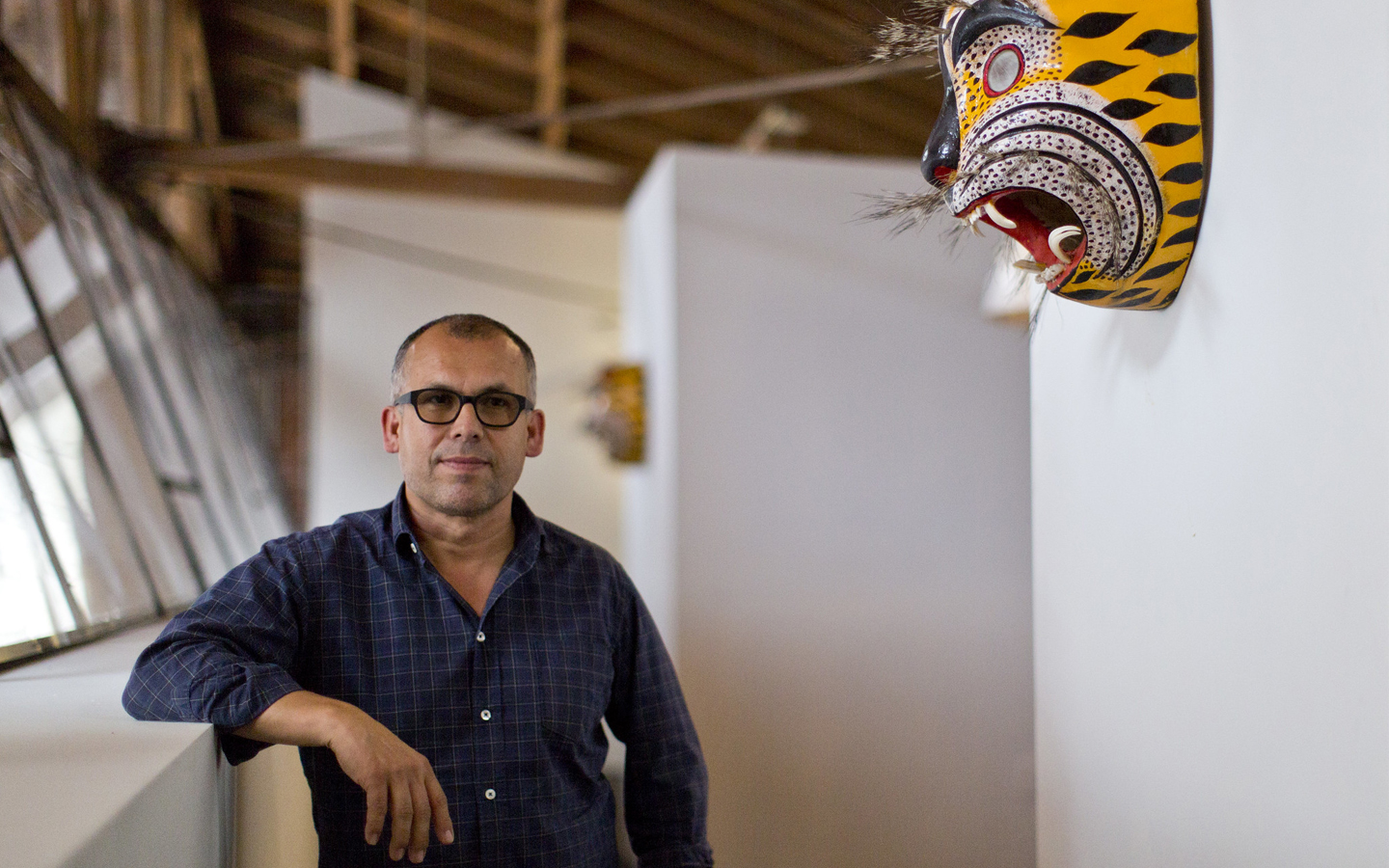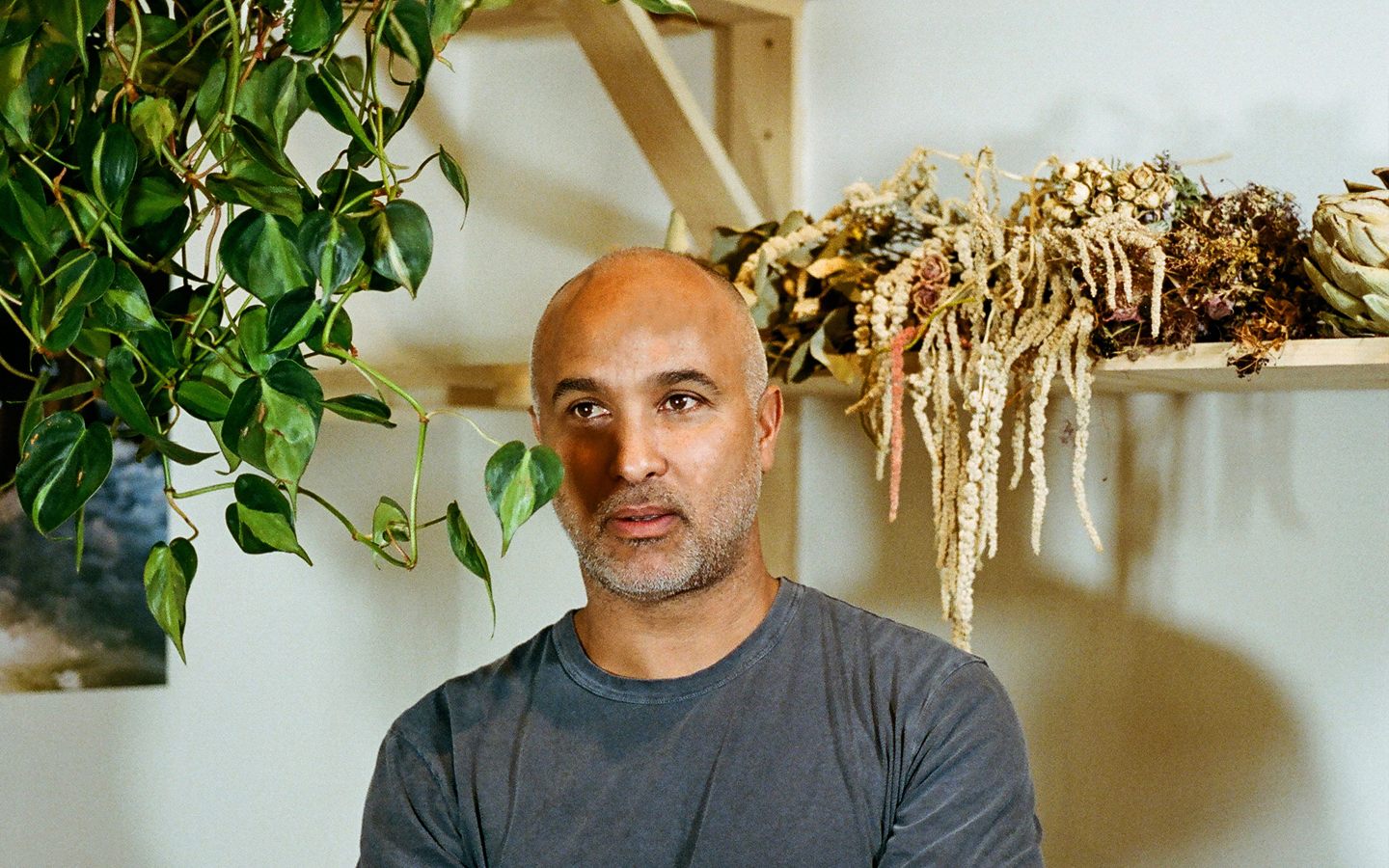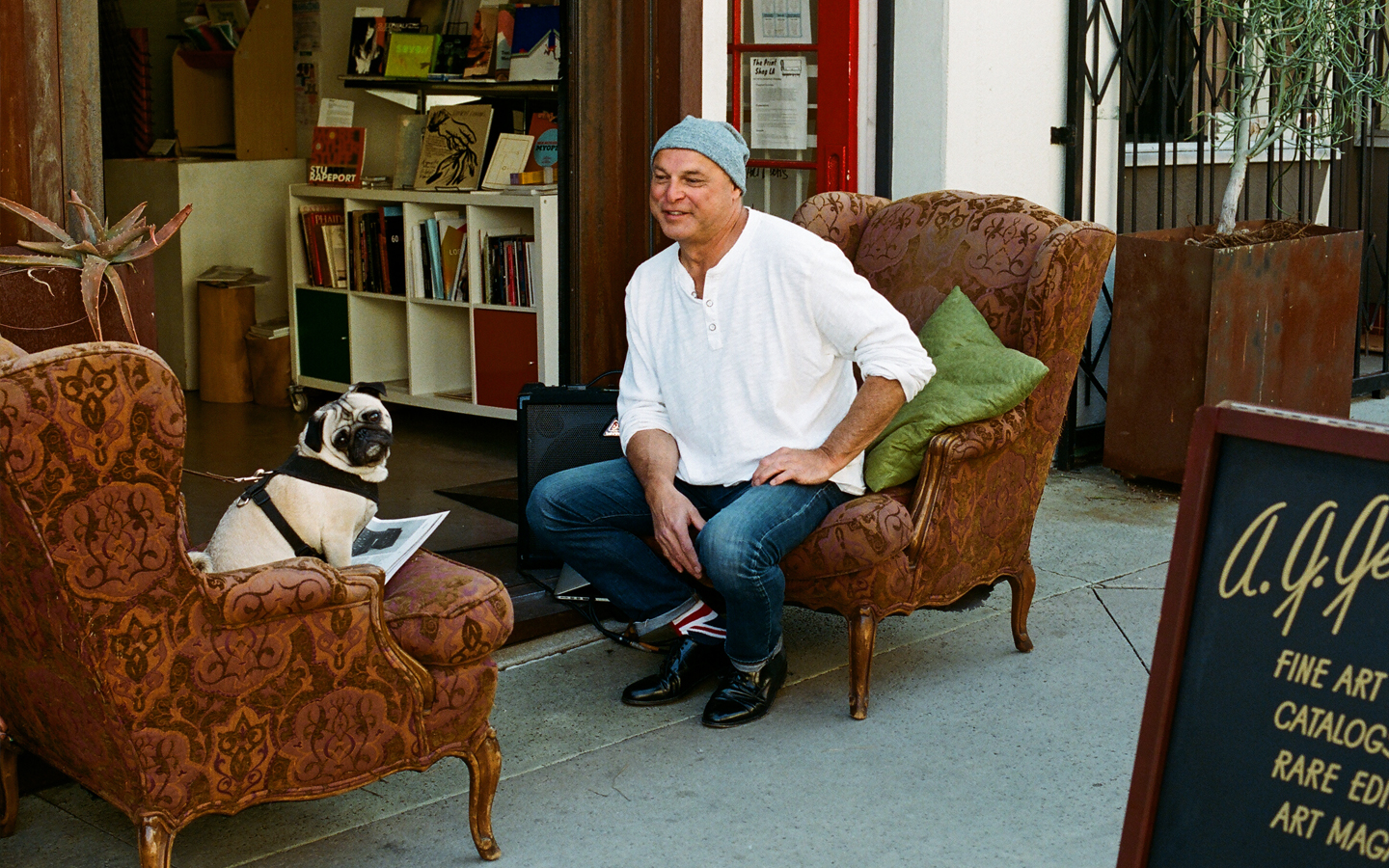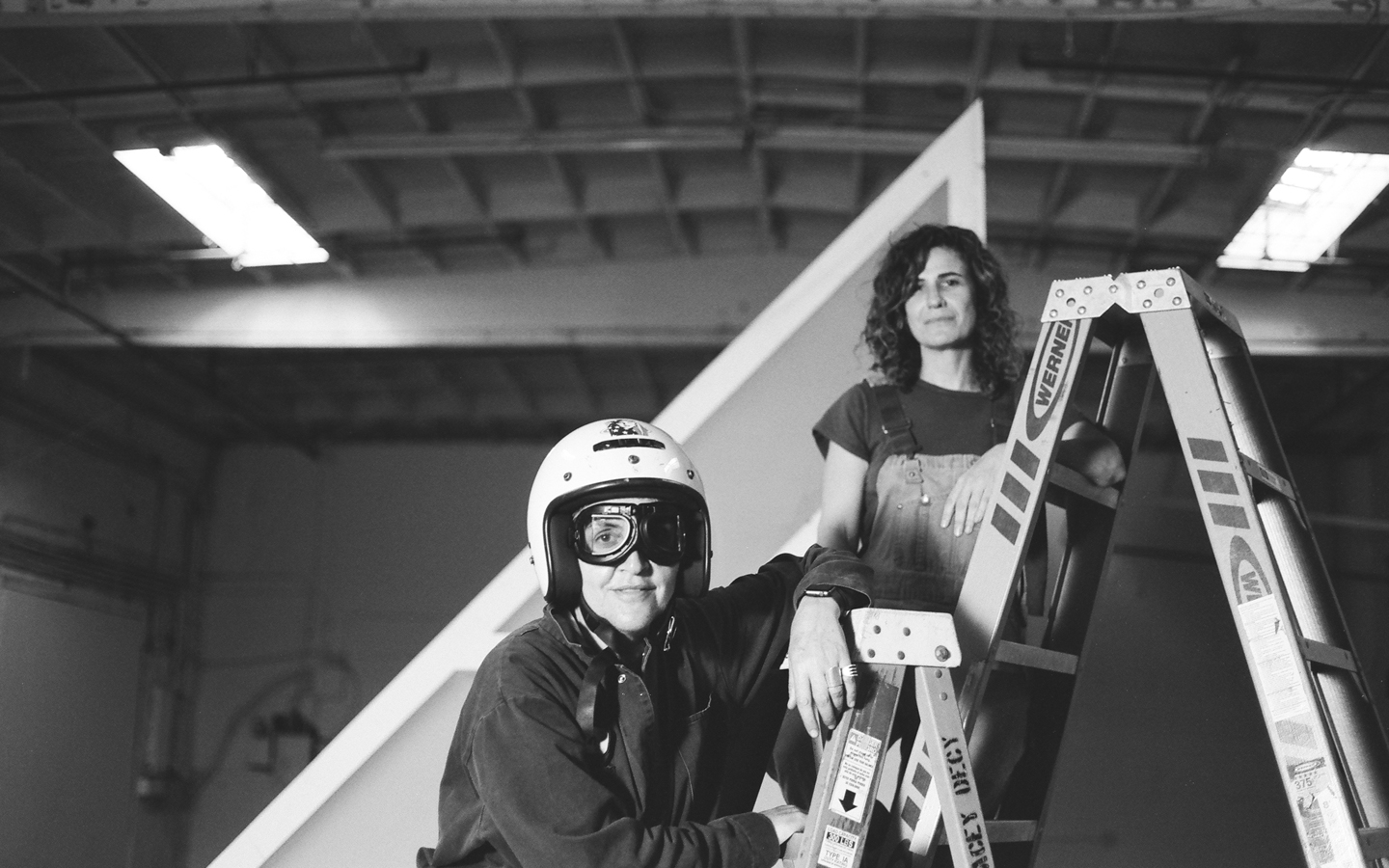
LADC Studios
TEXT MARLEE SHERWIN
VISUAL ALEJANDRO OHLMAIER
Cisco Pinedo, founder of the furniture company Cisco Brothers, has a lot in common with Donald Trump. Both have built million-dollar businesses, acquired other companies and made names for themselves. Both have seen their share of lows, filed for Chapter 11 bankruptcy, built it all back, and then some. Both learned to diversify their names and expand their brand into new product categories. And both men have done it thanks to immigrant labor.
But there’s a major difference between Cisco Pinedo and Donald Trump: Cisco Pinedo is conscious of the consequences of his work. He considers his company’s effects on people, and values his company’s environmental impact more than his bottom line.
He also knows it’s not all about him. “How do you improve quality of life for others?” Pinedo asks. “Through the work you do, for the people who work for you, for the people who use the product. Does the work you do improve their quality of life? That’s part of my mission: to make sure there’s value in what we do, so that others can benefit.”
Cisco Brothers focuses on sustainable design and consumer recognition of the artisans who craft each piece. The company operates as a manufacturer, wholesaler and retailer. With every conversation and transaction, the goal is not only to sell furniture, but also to build community.
“It’s like… you’re afraid to ask where the product was made because you don’t want to know the answer,” Pinedo observes of current consumer culture. “We embrace the beauty, but we don’t know who made the beauty – we don’t want to be disappointed.
Somehow, corporate America has taken advantage of that and packaged products very well, without any substance. My idea was always to highlight the people behind the product, and in my mind, this was the best way to do it.”
Pinedo invites consumers to come to Cisco Brothers’ complex, a place that in many ways seems more like a community center than the headquarters of a multi-million-dollar corporation. Based in South Los Angeles, the site itself, called the Los Angeles Design Center (L|A|D|C), is a bona fide architectural jewel in the midst of a historically underserved community. It mirrors cultures, from the La Cienega Design Quarter to Leimert Park to Ladera Heights, with all the swagger of New York City.
“I’ve been here [in South LA] my whole life, so I’ve seen the amazing architecture in this part of town. And I was always curious about what would happen if these properties could get a second chance, an opportunity. In the past, people would build to create community. We have become more detached from makers and the products we consume… we’ve lost that sense of community. These properties that were built in the 20s, 30s, 40s, they were built with that intention. I like to rescue things that people give up on.”
Pinedo built L|A|D|C in response to the 1992 Los Angeles riots, which fractured the South LA community. His vision was and remains simple: create beauty, authenticity and connection. With L|A|D|C, he hoped to create a physical space that embodies these ideas, in one of the last places you’d expect to find it.
On an intuitive level, he recognizes that bona fide beauty sparks transformation, especially when it’s unexpected. Actually, that’s the perfect word to describe L|A|D|C: unexpected, an oasis open to all who seek it.
To Pinedo, products and architecture are just one part of that equation. People are another, especially minorities facing unique challenges. This is why L|A|D|C and Cisco Brothers provide quality jobs and a high standard of living to mostly Latinos from the surrounding community. It’s also why Pinedo and his friend Tommy Safian created the non-profit Refoundry, a program that works with previously incarcerated individuals to ease their transition back into public life. Refoundry is not job training, but a business incubator. Participants create their own business concept over a ninety day paid period, and are then provided space in the L|A|D|C complex to execute their plans.
Despite the financial benefits of outsourcing its operations, Cisco Brothers has remained in South Los Angeles for nearly three decades. Leaving must have been tempting during Pinedo’s hardest times, when the economy went sour in 2008. But his character stopped him from selling out.
“I went overseas and saw what was going on,” he says. “It made me value what we’re doing even more. I realized I needed a way to package it even better, because people needed to know how amazing our product is. It opened my eyes to value. Americans are programmed to see value as… that second of adrenaline when we’re getting a deal.”
Ciscos aims to show the value in humanity and teach American consumers how to appreciate the origins and impacts of their purchases. By introducing quality, he shows us how to remain authentic, present, and conscious in our buying behavior.
“We’re seeing the results of what we’ve become. In the last thirty to forty years, we’ve been focused on . . . the opposite of quality of life. We’ve been focused on how to move goods faster and cheaper, not because that’s what’s good for people, but to make a better profit. And when that happens, eventually something’s gonna break.”
Something is already broken, but Pinedo does his part to help mend it. Despite the divisive rhetoric coming from the top office in this country, Pinedo is inspired by the impact he can make on our world.
“When you look at it, with Obama, we selected someone we felt had the answers for our communities. And eight years later, radical conservative religious people selected someone else, someone that they thought was the answer to their problems. We’re always looking for one person to come do the job, but really, it’s the job of all of us.”
You may also like
Sean Knibb of Flowerboy Project
“I want to change the way they look at the world, get them out of their pattern,” Sean Knibb say
Michael Delgado of A.G. Geiger Fine Art Books
What’s delightful about Delgado’s progression is his uncalculated pedigree: “I started collect
Jen + Laila of Electric Pony Studios
The art of creating space is as thoughtful and inspired as the art which unfolds within it.




